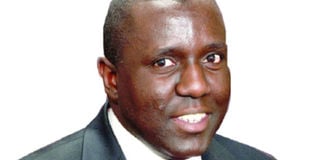Age limit debate progressing by crisis, deception and procedural flaps

Prime Minister Ruhakana Rugunda last week stated that the age limit was quickly drawing to a conclusion. Dr Rugunda, an ex-officio in Parliament, said the whip count in favour of the amendment was nearly 300. NRM has 303 MPs in Parliament, 76 NRM-leaning independents, and 10 UPDF soldiers. A friend of mine, who is close to NRM’s vote counting operation, shared the same news earlier with the additional salt that there is a small lobby of Opposition MPs that will join NRM to amend the Constitution.
With such unanimity, one wonders why the majority of NRM MPs who have gone out to consult the voters have faced such opprobrium from the public over the Article 102(b) proposals. A quick glance at the country shows the following regions at a minimum split, Kigezi (against), Ankole (split, South against, North for), Rwenzori (against), Toro (against), Bunyoro (against), West Mengo (against), Mubende (against), East Mengo (against), Kampala Metro (against), Busoga (split), Bukedi (against), Karamoja (against), Teso (split), Bugisu (against), Lango (split), Acholi (against), West Nile (to be reported).
MPs, including the generously endowed ones, are running away from irate voters.
As if to stir more trouble, Rebecca Kadaga, the Speaker, chided MPs for holding closed door consultations as if she had not read the police directives to rough-up opponents of the amendment or was visually immune from the bloody scenes that followed the kick-off of consultations opposite the Kasubi Tombs. The richer MPs have opted to turn consultations into parties, but without much success either.
The history of amending the Constitution has not been pretty. In 1966, UPC had accomplished through floor crossing an absolute majority in Parliament.
It brought not one, but two brand new constitutions in a space of two years. But to their credit, they didn’t amend the Constitution during their second stay in power between 1981 and 1985. The 1995 Constitution is 20 years old, but has gone through three major amendments, two of which have touched on one subject, the incumbency of the President.
The outside world has noticed. Uganda is no longer counted among the democracies in Africa; there are just 17 even though it has a very high number of elected officials and an elaborate legal system. Uganda, however, is absorbed in a new wave of minimising democratic tendencies.
Obote’s amendments in 1966 went against the widespread sentiments in some parts of the country they largely passed because their application was to “fix” certain stubborn segments of the population. In 2017, we have a different scenario - NRM with its majority in Parliament is amending the Constitution using MPs whose voters (including those from Karamoja), are against the amendment.
The fail-safe mechanism of the referendum in Article 1(4) is feared by both the ruling party and the Opposition.
Waging a referendum to lift the age limit would be a very costly lift for the pro-Museveni forces. It would be the first vote without Museveni on the ballot. The established Opposition is also afraid of the referendum because it would expose gaps in their operation that limits them to just one third of the country.
It is possible new leaders will emerge upsetting the status quo.
So now, the game has degenerated into cake cutting, trivial issues, police and anyone who cares. Parliament is now operating like a pancake brown on the outside, white on the inside has opened hearings while its members are officially still consulting their electorate until November 8.
Former Prime Minister Apolo Nsibambi and his cousin John Nagenda have been cheekily illustrating using non-flattering figurines of the wrath that old age brings. The long lost former Chief Justice Wilson Wako Wambuzi, perhaps one of the few statesmen left, painted a gloomy picture of tinkering with the Constitution. Even Dr Benjamin Odoki, who wrote of the dangers of overstaying in power, will not be drawn into twisting and turning the way Eriya Kategaya did in 2006.
Mr Ssemogerere is an Attorney-at-Law
and an Advocate. [email protected]




